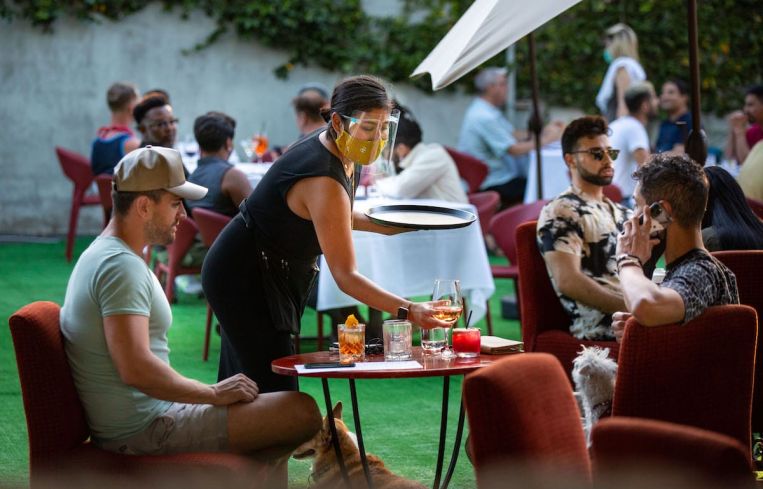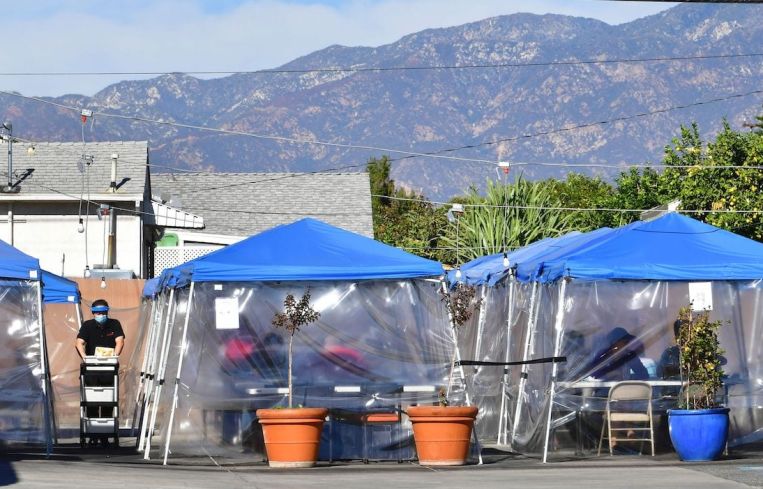LA Restaurants Get Reprieve as California Lifts Stay-at-Home Order
Hair salons and barber shops will also be allowed to reopen
By Greg Cornfield January 26, 2021 12:45 pm
reprints

Government officials surprised many in California on Monday by announcing that the current stay-at-home order and business curfews that were instituted to curb the surging coronavirus will be lifted. The decisions pave the way for restaurants to restart outdoor dining, and for other personal services like hair salons and barber shops to reopen.
Today is the one-year anniversary of the first case of COVID-19 in L.A. County. Since then, the county has confirmed nearly 1.1 million positive cases, with a total of 15,303 deaths.
With the order and curfews repealed, indoor malls and shopping centers can remain open at 25 percent indoor capacity; fitness facilities can open for outdoor operations; cardrooms can open for 50 percent outdoors; personal care businesses can open at 25 percent indoor capacity; and hotels and motels will be open. Restaurants, wineries and breweries remain open for pickup, delivery and takeout only until Jan. 29, at which point they will be allowed to reopen with restrictions.
“The restaurant industry was devastated by this lengthy shutdown and I know this would be welcome news to them,” L.A. County Supervisor Janice Hahn said in a statement.
The county’s announcement came hours after Gov. Gavin Newsom lifted the state’s regional order, reverting back to the Blueprint for a Safer Economy color-coded tier system for reopening. L.A. County, along with the majority of the state, is in the most restrictive purple tier.
The extended lockdowns and restrictions on restaurants and shopping centers have sparked legal challenges from landlords and business owners struggling to survive. Last month, an L.A. restaurant owner filed a lawsuit in federal court against Newsom over the outdoor dining ban.
Experts at Cox, Castle & Nicholson released an annual retail forecast this month for L.A., explaining the transforming landscape for real estate. Partner Gary Glick said capital markets pricing remains soft relative to pre-COVID, moving to a stage of price discovery and risk aversion.
“There’s a disconnect on pricing between shopping center buyers and sellers,” Glick wrote. “Shopping center investment sales will start to normalize in 2021 based on abundant liquidity, low cost of capital and attractive returns. Regional malls and distressed shopping centers could be a favored investment sector for a host of reasons, including large discounts in value, the receding pandemic, and a growing economy.”
He added that the ultra-low cost of borrowing will help offset any slow growth of rental income. Separately, CC&N Partner Dan Villalpando said the ability to adapt will be key for retail developers, with strategies focused on negotiating early lease termination with struggling tenants, as well as repurposing underperforming enclosed malls for other uses, including office, distribution or data centers.



